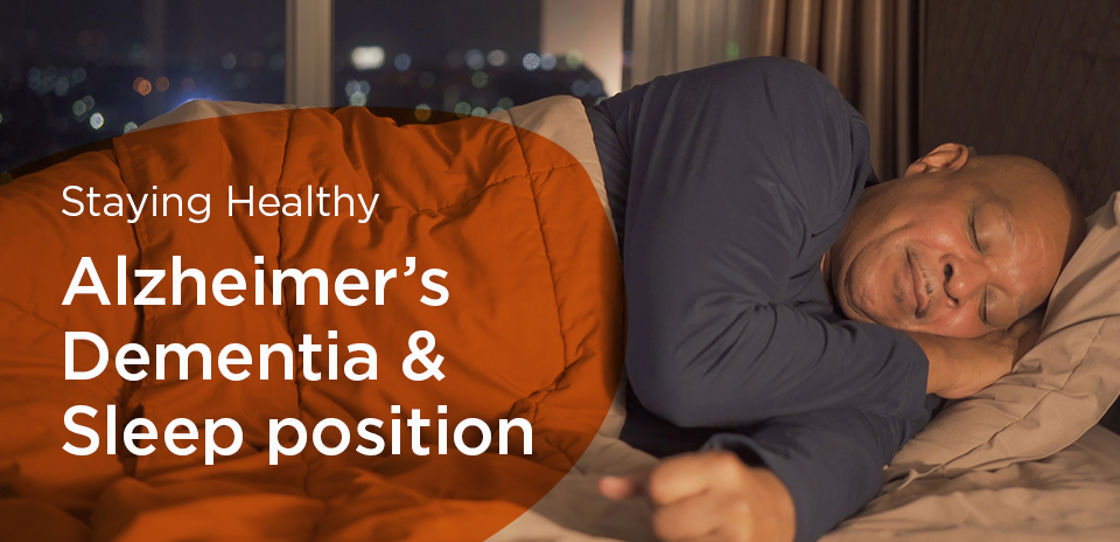Do you really think your doctor is going to give you this information? I only start on my back.
Did your doctor give you this from June 2022 and let you decide which is more important?
Neuroscience Says This Simple Sleep Habit Literally Cleans Your Brain June 2022
But your doctor should give you this
information and the risk of stroke study and you can decide which is
more important to you.
side sleeping (5 posts to February 2017)
JFK Johnson Rehabilitation suggests that side sleeping may increase risk of stroke
Staying Healthy: Alzheimer’s Dementia & Sleep position
Sleep position, including raising the head at night with an adjustable mattress, foam wedge or even pillows may help ease cognitive symptoms.
Sleep quality has been shown to have significant effect on
neurodegenerative disorders including Alzheimer’s dementia (AD), mild
cognitive impairment and other forms of dementia. Research shows those
disorders in turn affect sleep quality. Significant sleep disturbances
occur in up to 40% of people even with mild cognitive symptoms, and
severity of symptoms correlate with severity of sleep problems.
https://pubmed.ncbi.nlm.nih.gov/15978517/
Research has shown people with sleep-disordered breathing, such as
snoring, sleep apnea, and resulting low-oxygen levels are at an 85%
increased risk of cognitive impairment. Even controlling for other
factors such as age, sex, body mass index, diabetes, high blood
pressure, and medication use, greater than 7% of sleep time in oxygen
desaturation (hypoxia) doubled the risk of dementia in a study of older
(median age 82) women.
https://www.ncbi.nlm.nih.gov/pmc/articles/PMC3600944/
Lab studies in mice (whose day-night dynamics of brain proteins are
equivalent to humans) show the accumulation in the brain of
dementia-inducing amyloid β (Aβ) peptides increases when
sleep-disordered breathing (SDB) increases. SDB interrupts the brain’s
restorative slow-wave state and increases neuronal activity, which in
turn increases Aβ concentration in the fluid between brain cells.
https://pubmed.ncbi.nlm.nih.gov/16364896/
A 2019 study published in Journal of Alzheimer’s Disease,
showed among 165 participants (45 with diagnosed neurodegenerative
disease, 120 controls) a supine sleep position (on back, head at body
level) for more than 2 hours per night increased the risk of dementia by
almost four times (3.7 times greater). This increased risk remained
even when controlled for age, sex, snoring, or diagnosis of obstructive
sleep apnea. Researchers suggested the supine position reduces blood
movement in and out of the brain, and reduces lung efficiency, resulting
in lower brain oxygenation. Researchers pointed out it is currently not
feasible to measure the effects of head position on natural clearance
of soluble proteins such as Aβ from human brains, however laboratory
studies have shown supine-sleeping rats have diminished ability to clear
brain proteins compared to prone- elevated- or side-sleepers.
https://content.iospress.com/articles/journal-of-alzheimers-disease/jad180697
If you tend to sleep on your back, talk with your healthcare provider about whether you may want to change your habitual sleep position. Raising the head of your bed even slightly with a foam wedge or pillows may improve blood flow and oxygen saturation in your brain.

No comments:
Post a Comment